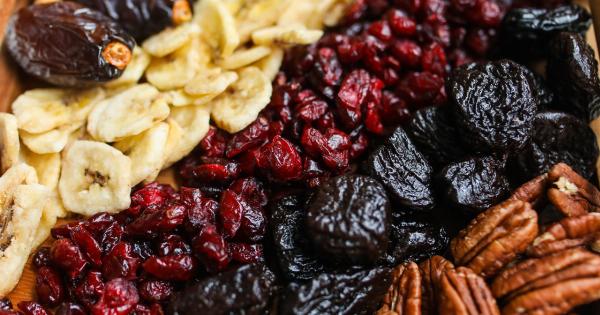Bowel diseases such as constipation, diarrhea, and irritable bowel syndrome (IBS) can significantly impact our daily lives and overall well-being. They can cause discomfort, pain, and disrupt our digestive system’s normal functioning.
While there is no foolproof way to prevent bowel diseases entirely, adopting a dual approach that focuses on diet can help reduce the risk and manage these conditions effectively. This article explores the two main elements of this dual approach – fiber and probiotics – and how they can contribute to maintaining a healthy bowel.
The Role of Dietary Fiber
Dietary fiber is an essential component of a healthy diet, mainly derived from plant sources such as fruits, vegetables, whole grains, and legumes. It is categorized into two types – soluble and insoluble fiber – each offering unique health benefits.
Both types of fiber play a pivotal role in preventing and managing bowel diseases.
Soluble Fiber for Bowel Health
Soluble fiber, as the name suggests, dissolves in water and forms a gel-like substance in the digestive system. This gel adds bulk to the stool, making it easier to pass through the intestines.
Moreover, soluble fiber acts as a prebiotic – a substance that promotes the growth of beneficial gut bacteria. By supporting the development of a healthy gut microbiome, soluble fiber helps optimize bowel function and reduces the risk of various diseases.
Foods rich in soluble fiber include oatmeal, legumes, fruits (such as apples and oranges), vegetables (including carrots and broccoli), and psyllium husk.
Incorporating these into our daily diet can aid in the prevention and management of bowel diseases.
Insoluble Fiber for Bowel Health
Insoluble fiber does not dissolve in water and adds bulk to the stool. It helps prevent constipation by accelerating the movement of food through the digestive system.
Additionally, this type of fiber enables regular bowel movements, reduces the risk of hemorrhoids, and maintains overall gut health.
Whole wheat bread, bran, brown rice, and vegetables like cauliflower and green beans are excellent sources of insoluble fiber.
Including these foods in our meals can promote bowel regularity and reduce the likelihood of constipation and other related diseases.
The Importance of Probiotics
Probiotics are live bacteria and yeasts that provide numerous health benefits, particularly for the digestive system. They play a significant role in regulating bowel movements, improving bowel regularity, and enhancing overall gut health.
Probiotics are available in various forms, including supplements and foods that naturally contain beneficial bacteria.
Natural Sources of Probiotics
Yogurt, kefir, sauerkraut, kimchi, and other fermented foods are excellent natural sources of probiotics. Adding these to our diet can help restore the balance of gut bacteria, improve digestion, and reduce the risk of bowel diseases.
It is essential to choose products that contain specific strains of bacteria known to have digestive benefits.
Probiotic Supplements for Bowel Health
While incorporating probiotic-rich foods into our diet is advantageous, it can sometimes be challenging to obtain sufficient quantities of beneficial bacteria. In such cases, probiotic supplements can be a convenient and effective solution.
These supplements contain concentrated forms of probiotics and can help bolster gut health, especially in individuals with specific bowel conditions or those at higher risk of developing bowel diseases.
A Well-Balanced Diet for Bowel Health
When it comes to preventing bowel diseases, it is crucial to adopt a well-balanced diet that incorporates both fiber and probiotics.
By combining these two elements, we can address the different aspects of bowel health – from promoting regular bowel movements to nurturing a healthy gut microbiome.
To optimize our bowel health, it is recommended to consume a variety of fruits, vegetables, whole grains, legumes, fermented foods, and probiotic supplements if necessary.
Additionally, it is essential to stay adequately hydrated, as water plays a vital role in maintaining bowel regularity. Limiting the intake of processed foods, sugary snacks, and excessive use of antibiotics can also contribute to overall bowel health.
Conclusion
Preventing and managing bowel diseases requires a multi-faceted approach, with diet playing a vital role.
The dual approach of incorporating fiber and probiotics into our daily routine can significantly contribute to bowel health and minimize the risk of debilitating bowel diseases. By maintaining a balanced diet that includes both soluble and insoluble fiber sources, as well as probiotic-rich foods or supplements, we can support our digestive system and ensure optimal bowel function.































